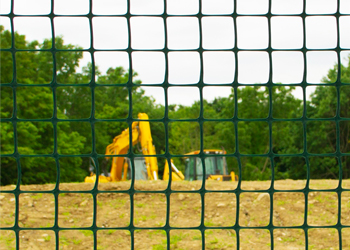Cost Analysis for Installing Gabion Fences in Your Outdoor Space
11 月 . 09, 2024 02:37
Understanding the Cost of Gabion Fences A Comprehensive Guide
Gabion fences have gained popularity in recent years as a versatile and aesthetically pleasing option for property boundaries, noise reduction, and even landscaping. Constructed from cages filled with stones or other materials, gabion fences combine functionality with an organic appearance that can enhance the surrounding environment. However, before investing in a gabion fence, it’s essential to understand the costs involved.
Initial Investment
The total cost of a gabion fence primarily depends on several key factors materials, labor, design, and location. On average, the cost of gabion fences ranges from $30 to $60 per linear foot. Factors contributing to this cost varies widely based on the quality of the materials selected, the complexity of the design, and ongoing maintenance.
1. Materials Costs - Gabion Baskets The cost of gabion baskets varies based on size and thickness. Typical prices range from $10 to $25 per basket, depending on the manufacturer and material quality. Standard options include galvanized steel, which protects against corrosion, and stainless steel for superior durability. - Filling Materials The filling is perhaps the most crucial element of the gabion fence. Crushed stone, rocks, or recycled concrete are commonly used materials. Prices for filling materials can range from $15 to $30 per ton, depending on the type and sourcing. The aesthetics of the filling also influences costs; colorful or unique stones can significantly increase expenses. 2. Labor Costs - If you decide to hire professionals for the installation, labor can add considerably to the total expenses. Depending on the complexity of the project and local labor rates, professional construction can range from $20 to $40 per hour. Many homeowners opt for DIY installation to cut costs, especially since gabion fences are relatively straightforward to assemble if you have some DIY skills.
3. Design Complexity - Simple straight fences are less expensive compared to elaborate designs featuring curves, step-ups, or integrated landscaping elements. Complex structures can require additional materials and increased labor time, therefore adding to the overall expenditure.
4. Location - The geographical location of your property affects costs as well. Areas with high material and labor costs will result in higher overall expenses. Additionally, if your property is in a remote location, transportation fees for materials can increase the overall investment.
gabion fence cost

Long-Term Considerations
While making the upfront investment in a gabion fence, it's important to consider long-term costs and benefits. Gabion fences are low-maintenance, but they may require occasional filling replacement or repairs if weather conditions are severe or if settling occurs over time.
Also, due to their natural aesthetic, gabion fences can increase property value and appeal. They are often viewed as an attractive feature, potentially enhancing resale value. Therefore, the initial investment in a gabion fence can be seen as not only a functional decision but also a financial one, yielding long-term benefits.
Conclusion
In conclusion, the cost of installing a gabion fence is influenced by a multitude of factors, including materials, labor, design complexity, and location. While the initial costs can be significant, the durable nature and aesthetic appeal of gabion fences make them a worthwhile investment for many property owners. Whether you choose to hire professionals or embark on a DIY project, understanding the breakdown of costs is essential for informed decision-making. By considering both initial and long-term expenses, you can determine if a gabion fence is the right choice for your property and budget.
Invest in a gabion fence today, and not only enhance your property’s boundaries but also enjoy the timeless beauty and functionality they provide.




















